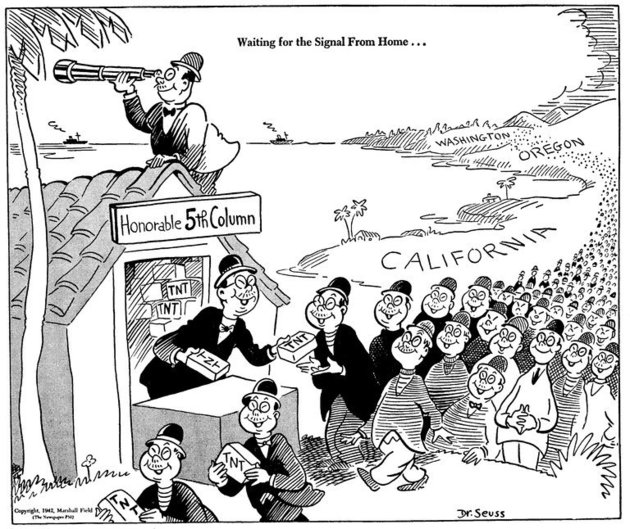As someone who’s Asian-American, all my life I’ve dealt with people who assume that I speak Chinese. The majority of times I get in a cab, one of the first questions from the driver will be, “Where are you from?” (And they’re never satisfied when I say “Buffalo.”) There was also that one time a woman held up some Japanese food and assumed I knew all about it because, well, just look at me.
When you look different, there’s still an assumption that you’re a bit foreign. Sure, you’ve lived in the United States your whole life and you’re a citizen. Maybe you and your parents — or even grandparents — were born here. But you still must have ties to wherever your ancestors came from, because you’re not white.
That type of behavior is no longer confined to random cab drivers or ignorant people on the street. It’s now being pushed by the Republican Party’s presumptive presidential nominee.
On Friday, Donald Trump continued to insist that Gonzalo Curiel, a federal judge, is “Mexican” and biased against him because of his plan to build a wall with Mexico.Curiel was born in Indiana to parents who emigrated from Mexico.
Curiel is in Trump’s crosshairs because he is handling two lawsuits against Trump University, the for-profit school that former employees have called a “fraudulent scheme“ that “preyed upon the elderly and uneducated to separate them from their money.” Last week, the judge ordered the release of embarrassing internal documents, which set off Trump’s anger. Trump called him a “hater” and said he believed the judge was “Mexican.”
Despite the criticism he received, Trump doubled-down on those accusations during an interview with CNN Friday.
“He’s a Mexican,” Trump said of Curiel. “We’re building a wall between here and Mexico. The answer is, he is giving us very unfair rulings — rulings that people can’t even believe.”
It’s worth noting that in the late 1990s, Curiel was a prosecutor going after Mexican drug cartels. Because of that work, a Tijuana drug lord targeted him for assassination, and federal marshals put him under 24-hour protection for a year.
CNN host Jake Tapper pointed out that Curiel is from Indiana. Trump replied that Curiel is of “Mexican heritage” and “very proud of it.”
These types of racial assumptions — that American citizens are more loyal to their country of heritage than the United States — drove fears of Japanese-Americans during World War II as well, which eventually led to the internment of about 120,000 people. It’s a decision that is now considered one of America’s most shameful acts. They had done nothing wrong, but many people in the country worried that they were secretly loyal to the Axis powers.



